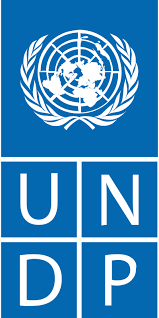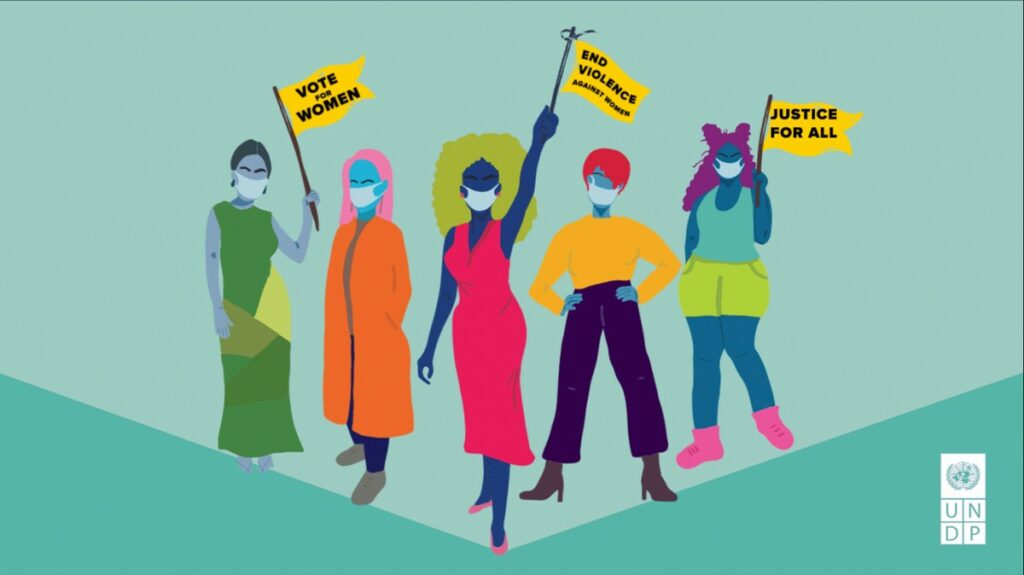International Women’s Day 8 Mar 2021
UNITED NATIONS, 8 Mar 2021
Achim Steiner | UNDP - TRANSCEND Media Service
Statement on International Women’s Day – 8 March 2021
Theme: ‘Women in leadership: Achieving an equal future in a COVID-19 world.’
This year’s International Women’s Day is like no other. As countries and communities start to slowly recover from a devastating pandemic, we have the chance to finally end the exclusion and marginalization of women and girls. But to do that, we need immediate action. Women must have the opportunity to play a full role in shaping the pivotal decisions being made right now as countries respond to and recover from the COVID-19 pandemic – choices that will affect the wellbeing of people and the planet for generations to come.
To do this, we must break down the deep-seated historic, cultural, and socio-economic barriers that prevent women from taking their seat at the decision-making table to make sure that resources and power are more equitably distributed. For instance, across the world, women remain concentrated in the lowest paid jobs, many in extremely vulnerable forms of employment. Women are nearly twice as likely than men to lose their jobs during the COVID-19 crisis. Indeed, the pandemic will dramatically increase the poverty rate for women and widen the gap between men and women who live in poverty. The United Nations Development Programme (UNDP) is working with countries across the globe to address these inequalities. Our eye-opening new policy brief explores how a Temporary Basic Income for women in developing countries could provide part of the solution. UNDP argues that a worthwhile monthly investment of 0.07 per cent of developing countries’ GDP could help 613 million working-aged women living in poverty to absorb the shock of the pandemic. It would also contribute to the economic security and independence that is necessary for women to engage more deeply in the decisions that could change their future.
Despite the barriers, women, especially young women, are at the forefront of diverse and inclusive movements for social change — online and in the streets. That includes their leading role in taking a stand against climate change, fighting for a green economy and pushing for women’s rights. And we know that more inclusive leadership and representation leads to stronger democracies, better governance, and more peaceful societies. Look, for instance, to research by UN Women, which demonstrates that involving women in peace processes is likely to make peace agreements last much longer. However, we aren’t moving fast enough. At the current rate of progress, gender equality among Heads of Government, for example, will take another 130 years. To disrupt the status quo, UNDP is working to amplify women’s voices and promote their participation and leadership in public institutions, parliaments, the judiciary, and the private sector. With our support, some 180 different measures — from electoral quotas to gender-smart business policies — were put in place by countries across the globe in 2019. And the COVID-19 Global Gender Response Tracker by UNDP and UN Women is helping Governments to identify and address gaps in their response to the pandemic – from ways to address gender-based violence to how to redistribute unpaid care work.
To build forward better from the COVID-19 crisis, and to get the Global Goals firmly back on track, we cannot simply return to the world we had before. We must do things differently. That means shattering the barriers that hold women and girls back. This year’s International Women’s Day is a rallying cry for Generation Equality. It is time to finally fully harness the power of women’s leadership to realise a more equal, more inclusive and more sustainable future.
Achim Steiner, Administrator, United Nations Development Programme (UNDP)
Tags: International Women's Day, UNDP, United Nations, Women, Women Rights
DISCLAIMER: The statements, views and opinions expressed in pieces republished here are solely those of the authors and do not necessarily represent those of TMS. In accordance with title 17 U.S.C. section 107, this material is distributed without profit to those who have expressed a prior interest in receiving the included information for research and educational purposes. TMS has no affiliation whatsoever with the originator of this article nor is TMS endorsed or sponsored by the originator. “GO TO ORIGINAL” links are provided as a convenience to our readers and allow for verification of authenticity. However, as originating pages are often updated by their originating host sites, the versions posted may not match the versions our readers view when clicking the “GO TO ORIGINAL” links. This site contains copyrighted material the use of which has not always been specifically authorized by the copyright owner. We are making such material available in our efforts to advance understanding of environmental, political, human rights, economic, democracy, scientific, and social justice issues, etc. We believe this constitutes a ‘fair use’ of any such copyrighted material as provided for in section 107 of the US Copyright Law. In accordance with Title 17 U.S.C. Section 107, the material on this site is distributed without profit to those who have expressed a prior interest in receiving the included information for research and educational purposes. For more information go to: http://www.law.cornell.edu/uscode/17/107.shtml. If you wish to use copyrighted material from this site for purposes of your own that go beyond ‘fair use’, you must obtain permission from the copyright owner.

